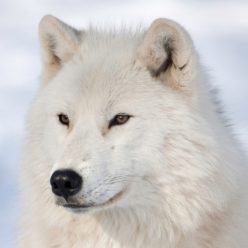There was a recent article in the New Yorker by Bill McKibben entitled “Our Stuff Weighs More Than All Living Things on the Planet”. In his article he described the results of a study1 by a team led by Emily Elhacham, at the Weizmann Institute of Science, in Rehovot, Israel, which concluded that 2020 was the year in which the weight of “human-made mass”—all the stuff we’ve built and accumulated—exceeded the weight of biomass on the planet.
I wonder if, in calculating the weight of human “stuff”, they included the weight of human “shit” – not just excrement, but all the waste we have created that no longer serves our whims. We have filled valleys with it and built mountains of it and what hasn’t gone into those valleys and mountains has gone into the seas and the atmosphere.
I have often wondered about the impact of human activity on our environment and how it will affect life in the future. Throughout the history of life on earth there have been at least five major extinctions in which at least 75% of all living species on the planet perished. Scientists still are not certain as to the causes of these extinctions, but they are popularly believed to have been caused by natural disasters such as asteroid impacts, volcanic activity, global weather changes, etc.
I have long suspected that the dinosaurs perished not because an asteroid fell into the Gulf of Mexico (that undoubtedly helped) but because they destroyed their environment rendering it uninhabitable. (More than one geologist has agreed that is totally plausible.) In thinking about this, it has led me to a theory that every major extinction was ultimately the result of a dominant life species that, through exponential growth, consumed all of its food supply and destroyed its environment and that of all species in its food chain, resulting in its own extinction along with others. (I have explained this theory in a paper yet to be published, but the Cliff Notes version follows.)
In essence, humans are the dominant species of this era. Our population is growing at an exponential rate which, by itself, is harmful to the environment and reduces habitat for other species. To make matters worse, we have developed technologies that enable us to alter the environment making it more comfortable for us, but less habitable for other species on which we are directly and indirectly dependent for our own survival. To cap it off, we create waste at an exponentially increasing rate that depends on both the size of our population and the effects of our technologies. This waste affects the land, the seas, the atmosphere and ultimately the climate which, in turn, affects the habitability of the environment for all species, humans included. In a closed system (which our planet clearly is), this exponential increase in environmental destruction can only be disastrous for many species, ourselves included.
We have achieved total dominance over all species on the planet and are increasing our numbers exponentially. In addition, we have achieved the alchemists’ dream except in reverse. Instead of turning lead into gold, we are turning all the world’s natural wealth into shit – at a doubly exponential rate. And if we don’t stop, we’ll likely perish in that shit and go the way of the dinosaurs.
